KASODEFO Tanzania – empowerment of communities
By Denise Nanni and
Milena Rampoldi, ProMosaik. In the following our interview with Ezekiel
Kassanga of the organization KASODEFO
working in Tanzania to struggle against poverty, and to support marginalized
and discriminated people. Would to thank Ezekiel for his important information
and photos.
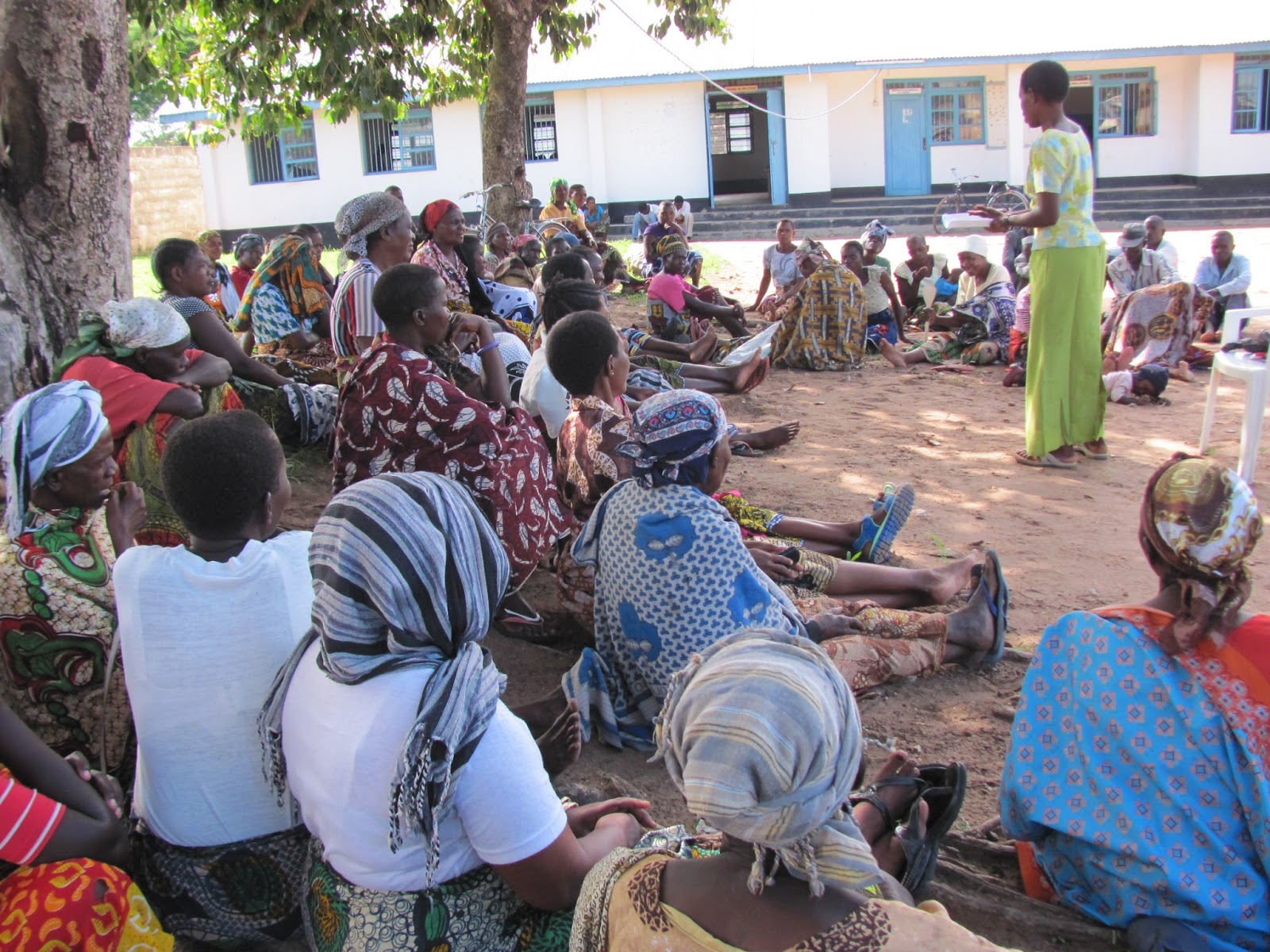
What are the issues that brought to the foundation of
KASODEFO and what are its activities?
KASODEFO and what are its activities?
KASODEFO was found and is operating with strong
commitment to fight the abject poverty, shortage of water, environmental
degradation, persistence of diseases and poor health services (such as malaria,
infants fever and deaths, HIV/AIDS, Tuberculosis, etc), human rights
violations (based on gender based violence over women and children,
discrimination and segregation characterized by the killings of elders and
Albinos, forced and child marriages, beating of wives, raping, child
pregnancies and denial of education right to children especially girl
children in Sukuma pastoral society). Kawiye
Social Development is a Non Governmental Organization registered to operate in
Mainland Tanzania (National wise GNO). It was officially registered on 24th
February 2012 with registration number 00NGO/00005153.
commitment to fight the abject poverty, shortage of water, environmental
degradation, persistence of diseases and poor health services (such as malaria,
infants fever and deaths, HIV/AIDS, Tuberculosis, etc), human rights
violations (based on gender based violence over women and children,
discrimination and segregation characterized by the killings of elders and
Albinos, forced and child marriages, beating of wives, raping, child
pregnancies and denial of education right to children especially girl
children in Sukuma pastoral society). Kawiye
Social Development is a Non Governmental Organization registered to operate in
Mainland Tanzania (National wise GNO). It was officially registered on 24th
February 2012 with registration number 00NGO/00005153.
CURRENT KASODEFO
ACTIVITIES ARE
ACTIVITIES ARE
i.
Legal aid and education, and human rights campaigns (advocacy and
sensitization)
Legal aid and education, and human rights campaigns (advocacy and
sensitization)
In this we train and support Paralegals who works
with our team in provision of legal aid and education in five districts of
Simiyu region. We have five Paralegal units in five districts and the sixth at
our office. Additionally, we have mobile legal aid clinic to serve the interior
rural communities. Also we have different human rights campaigns using local
radio stations, TV, sports and games. We have established and support human
rights clubs in different secondary schools in Maswa district.
with our team in provision of legal aid and education in five districts of
Simiyu region. We have five Paralegal units in five districts and the sixth at
our office. Additionally, we have mobile legal aid clinic to serve the interior
rural communities. Also we have different human rights campaigns using local
radio stations, TV, sports and games. We have established and support human
rights clubs in different secondary schools in Maswa district.
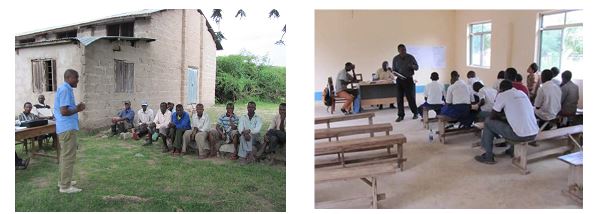
ii. Entrepreneurship
training and micro financing
training and micro financing
We offer training in entrepreneurships and running
microcredit scheme (revolving fund) since 2014. We give small (Tsh 300,000/=)
and medium (Tsh 500,000/=) loans with soft interest which is used to give new
loans every month.
microcredit scheme (revolving fund) since 2014. We give small (Tsh 300,000/=)
and medium (Tsh 500,000/=) loans with soft interest which is used to give new
loans every month.
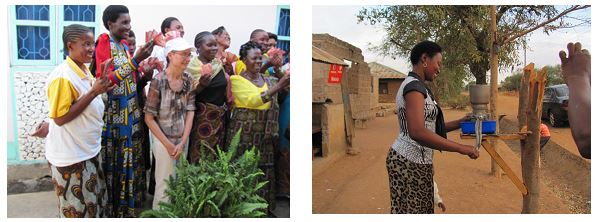
iii. Vocational
training (computer, tailoring, embroidery and knitting)
training (computer, tailoring, embroidery and knitting)
We have vocational training center offering
computer training (in basic computer application and simple maintenance),
embroidery, tailoring and knitting in Maswa. Our targeted trainees are youth
and women. Youth are mostly those who failed to continue for further studies or
training after completing class seven or form four due to poor academic
performance or economic constraints.
computer training (in basic computer application and simple maintenance),
embroidery, tailoring and knitting in Maswa. Our targeted trainees are youth
and women. Youth are mostly those who failed to continue for further studies or
training after completing class seven or form four due to poor academic
performance or economic constraints.
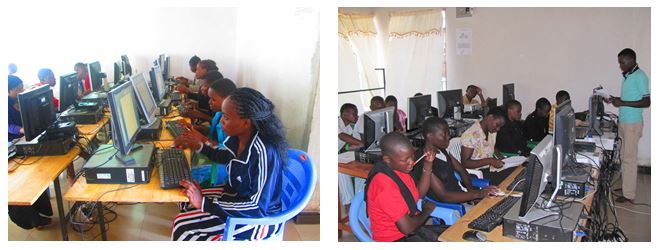
iv. Water wells
(boreholes drilling)
(boreholes drilling)
We are drilling boreholes in Maswa district using
simple (rope drill) technology. Also we are installing rope pumps for water
pumping. Drilled water are for domestic and commercial (irrigation and fish
farming).
simple (rope drill) technology. Also we are installing rope pumps for water
pumping. Drilled water are for domestic and commercial (irrigation and fish
farming).
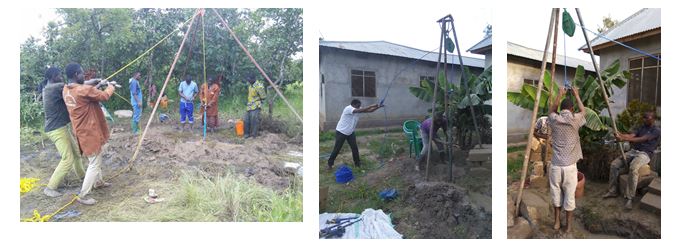
v.
Improvement of health services provision and fight of diseases
Improvement of health services provision and fight of diseases
We have sensitization and demand creation projects
as well as training of community health workers who are working as voluntary
health workers hence support the employed/government health officers. In our
area we have big shortage of health facilities and workers. Since September
2015 we have trained about 200 community health workers working in dispensaries
and health centers in Maswa district.
as well as training of community health workers who are working as voluntary
health workers hence support the employed/government health officers. In our
area we have big shortage of health facilities and workers. Since September
2015 we have trained about 200 community health workers working in dispensaries
and health centers in Maswa district.
Our focus is on five main areas namely Malaria,
Family planning, HIV/AIDS, Tuberculosis as well as maternal and child
health. With our community health
workers and district health department we are running sensitization campaigns
as well as provision of voluntary counseling and test for Malaria and HIV. For
family planning we sensitize the community members and give referral to the
government health centers to get medical services e.g. use of contraceptives.
Family planning, HIV/AIDS, Tuberculosis as well as maternal and child
health. With our community health
workers and district health department we are running sensitization campaigns
as well as provision of voluntary counseling and test for Malaria and HIV. For
family planning we sensitize the community members and give referral to the
government health centers to get medical services e.g. use of contraceptives.
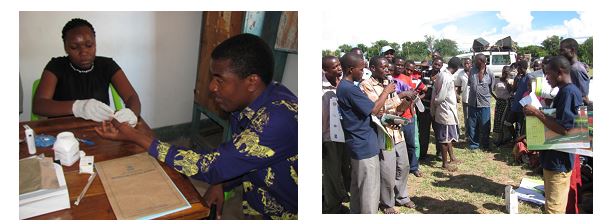
vi.
Farming projects (gardening, fish farming, poultry and pig farming)
Farming projects (gardening, fish farming, poultry and pig farming)
We train and support different farming projects
include fish farming, poultry, pig farming and gardening. We have partnership
with the government veterinarians who are used in training and technical
support to our clients. Our microcredit scheme is also giving loans to
different clients engaging in farming.
include fish farming, poultry, pig farming and gardening. We have partnership
with the government veterinarians who are used in training and technical
support to our clients. Our microcredit scheme is also giving loans to
different clients engaging in farming.
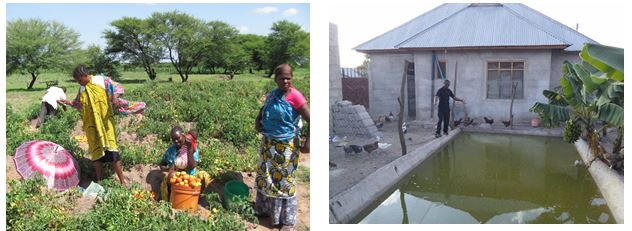
vii. Education
support project
support project
We are supporting primary school pupils from orphanage
and those from poor families through provision of learning materials and
uniforms. In Tanzania, primary and secondary (ordinary) education is free
provided in public schools. So, we support those who can’t afford the above
mentioned materials because those are not provided by the government.
and those from poor families through provision of learning materials and
uniforms. In Tanzania, primary and secondary (ordinary) education is free
provided in public schools. So, we support those who can’t afford the above
mentioned materials because those are not provided by the government.
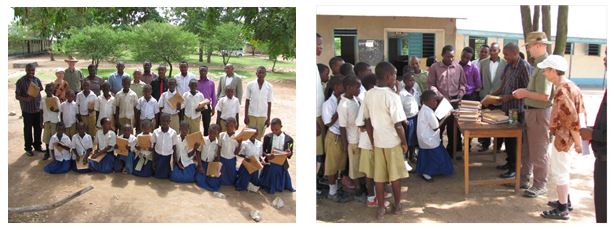
viii. HIV/AIDS
impacts mitigation
impacts mitigation
In HIV/AIDS impact mitigation we are providing
notorious food and sanitary materials to the people living with HIV/AIDS
especially the children (below 18 yrs old). We do than in collaboration with
the District CTC where children living with HIV/AIDS are gathering in every
last Saturday of the month.
notorious food and sanitary materials to the people living with HIV/AIDS
especially the children (below 18 yrs old). We do than in collaboration with
the District CTC where children living with HIV/AIDS are gathering in every
last Saturday of the month.
ix.
Carrying out researches
Carrying out researches
In order to identify the underlying causes of the
community problems we are addressing, we use to conduct different baseline
surveys and researches. With that, we deal with what is really need
intervention.
community problems we are addressing, we use to conduct different baseline
surveys and researches. With that, we deal with what is really need
intervention.
How would you define your approach?
Our
approach is basically capacity building/development as per our motto “We help
community members to help themselves” through training and support. Advocacy,
victims support as well as research and development are supplemental approaches.
We term them as very successful approach because they are participatory in
nature. All key stakeholders/players including the targeted beneficiaries,
local government authorities (LGAs), policy makers, community at large and
other key players are involved accordingly. This enhances sustainability of
most of our interventions.
approach is basically capacity building/development as per our motto “We help
community members to help themselves” through training and support. Advocacy,
victims support as well as research and development are supplemental approaches.
We term them as very successful approach because they are participatory in
nature. All key stakeholders/players including the targeted beneficiaries,
local government authorities (LGAs), policy makers, community at large and
other key players are involved accordingly. This enhances sustainability of
most of our interventions.
What are according to your experience the most effective
ways to foster community empowerment?
ways to foster community empowerment?
Training and support (teach the
beneficiaries to fish rather than giving fishes).
beneficiaries to fish rather than giving fishes).
In what ways do you promote gender equality?
Inclusive
approaches, advocacy, sensitization and women integration and women
empowerment. For example, our microcredit scheme since it begun it gives loans
only to women.
approaches, advocacy, sensitization and women integration and women
empowerment. For example, our microcredit scheme since it begun it gives loans
only to women.
Do you cooperate with local authorities and institutions?
If yes, how?
If yes, how?
Yes,
through joint planning, activities implementation, joint monitoring and
evaluation in most of our community activities. Also we share our reports
(activities and financial) to the local and central government authorities.
through joint planning, activities implementation, joint monitoring and
evaluation in most of our community activities. Also we share our reports
(activities and financial) to the local and central government authorities.


